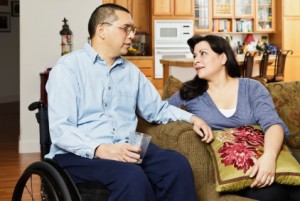It’s common for people to take a blow to the head and experience various symptoms afterward, and those symptoms shouldn’t be ignored. Small injuries usually don’t require medical attention and will begin to heal on their own, but if the damage is severe, the victim may begin to experience disrupted brain functionality. In that case, the person may be dealing with a concussion, which requires immediate medical attention.
If you begin to feel dizzy, develop a bad headache, become nauseous, pass out, or have trouble remembering things in the wake of a head injury, here are the steps you should take to ensure your health and safety.
Step 1: Seek Medical Attention
A person with a concussion needs to be evaluated by a doctor as soon as possible. The medical attention may involve a neurological test, CT scan, and MRI scan to determine the extent of the brain injury and whether or not the person has a concussion. The tests will also indicate whether or not further treatment is immediately necessary.
Step 2: Allow Your Head to Rest
Once a person knows they have a concussion and has been released from the doctor’s care, it’s important that they give their brain time to recover from the traumatizing event. They should put away loud or bright distractions and try to get as much solid sleep as possible so their body has the energy to recover.
Step 3: Watch for Worsening Symptoms
As a person with a concussion starts to recover, they should monitor their overall health and watch for worrisome signs of further damage. Excessive physical exercise and strenuous mental activity may trigger other problems, as can pain relievers.
If someone you know has sustained a serious concussion or a traumatic brain injury of some severity, feel free to reach out to TryMunity. Their online community of TBI survivors and their families are available to offer support, advice, and friendship. Remember that you are never alone when it comes to struggling with traumatic brain injuries. Join TryMunity today at www.trymunity.com.


 Every year, millions of Americans fall prey to the aftermath of traumatic brain injuries (TBIs). Caring for one of these survivors can be emotionally, financially and physically taxing for anyone, but it can also be incredibly rewarding when you make a positive difference in the affected person’s life.
Every year, millions of Americans fall prey to the aftermath of traumatic brain injuries (TBIs). Caring for one of these survivors can be emotionally, financially and physically taxing for anyone, but it can also be incredibly rewarding when you make a positive difference in the affected person’s life.  Caregiver burnout is a REAL thing. If you’ve been entrusted with taking care of someone, especially for long periods of time, then this is to be expected – to an extent. Here are some helpful tips for avoiding burnout, as much as possible.
Caregiver burnout is a REAL thing. If you’ve been entrusted with taking care of someone, especially for long periods of time, then this is to be expected – to an extent. Here are some helpful tips for avoiding burnout, as much as possible. It is no secret that
It is no secret that  though other people don’t understand what you are going through, and you are probably tired of explaining the diagnosis and what it means. Whether you are looking for information or support, a TBI support group is a great resource. Here are a few benefits of joining a support group, like TryMunity.
though other people don’t understand what you are going through, and you are probably tired of explaining the diagnosis and what it means. Whether you are looking for information or support, a TBI support group is a great resource. Here are a few benefits of joining a support group, like TryMunity. Everyone has his or her challenges in life. People with
Everyone has his or her challenges in life. People with  When you or a family member has suffered a
When you or a family member has suffered a  The Internet is an excellent resource for a wide range of medical information, including traumatic brain injury. There is a wealth of information, personal stories, and more that
The Internet is an excellent resource for a wide range of medical information, including traumatic brain injury. There is a wealth of information, personal stories, and more that 

